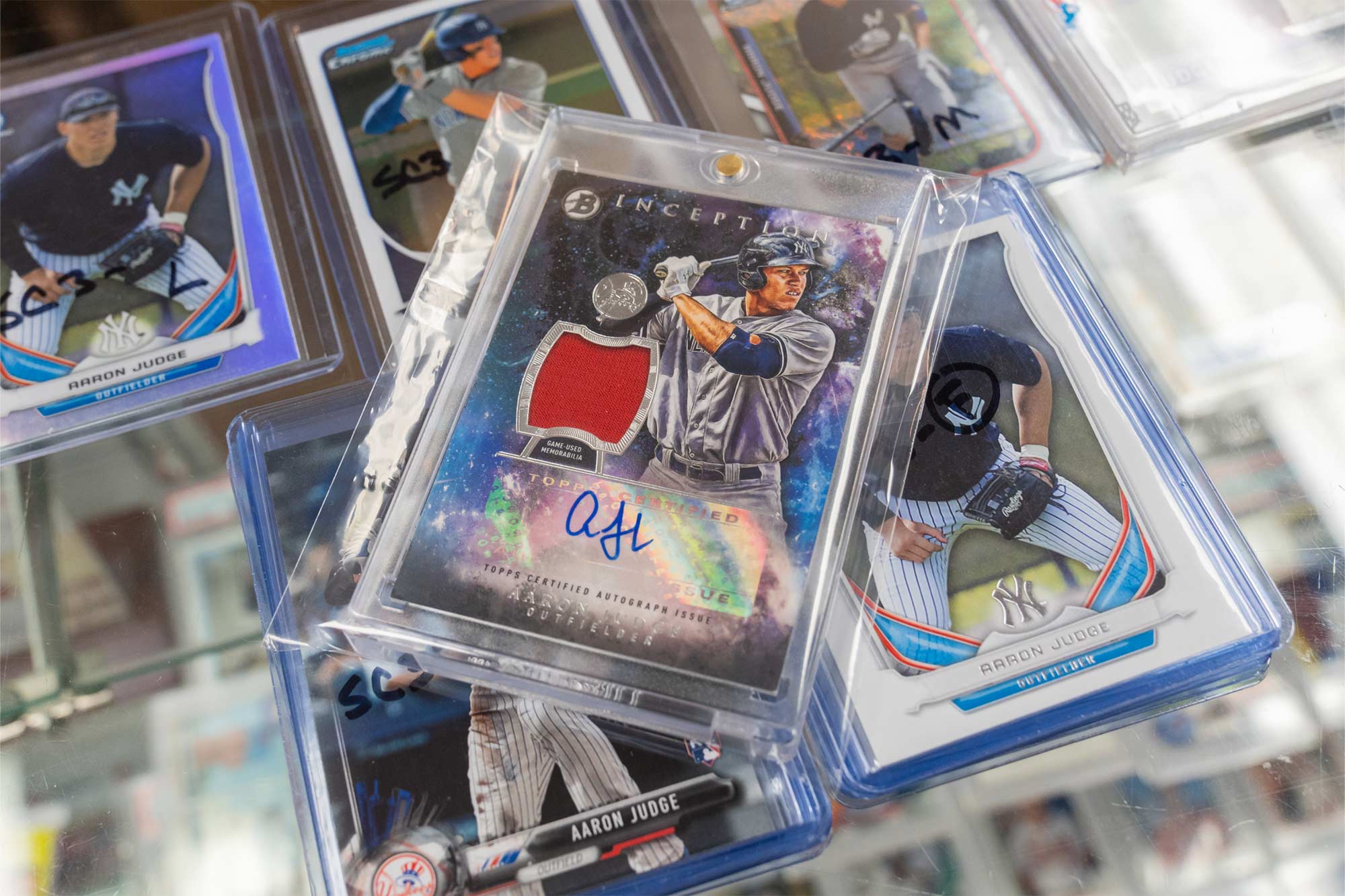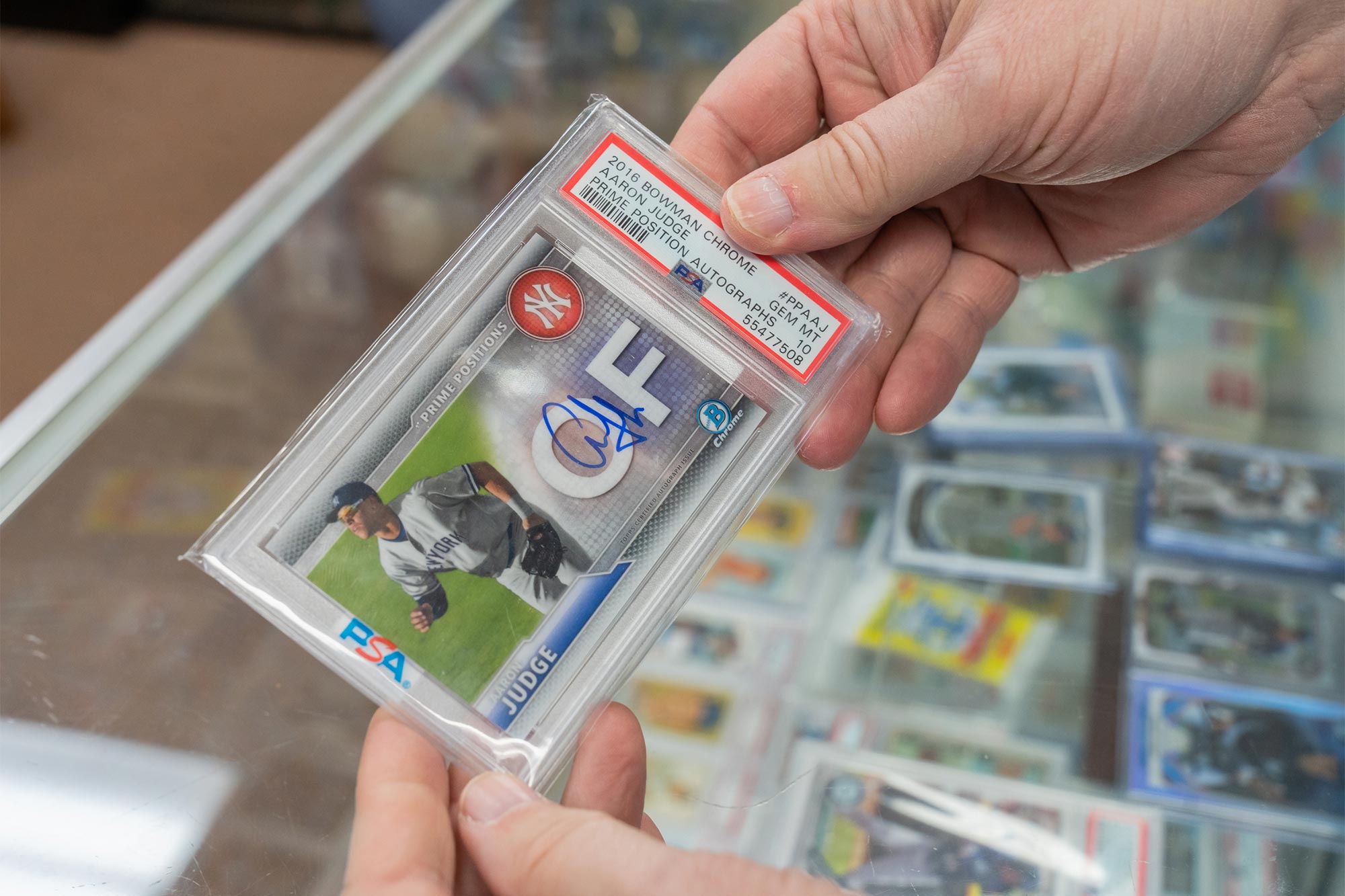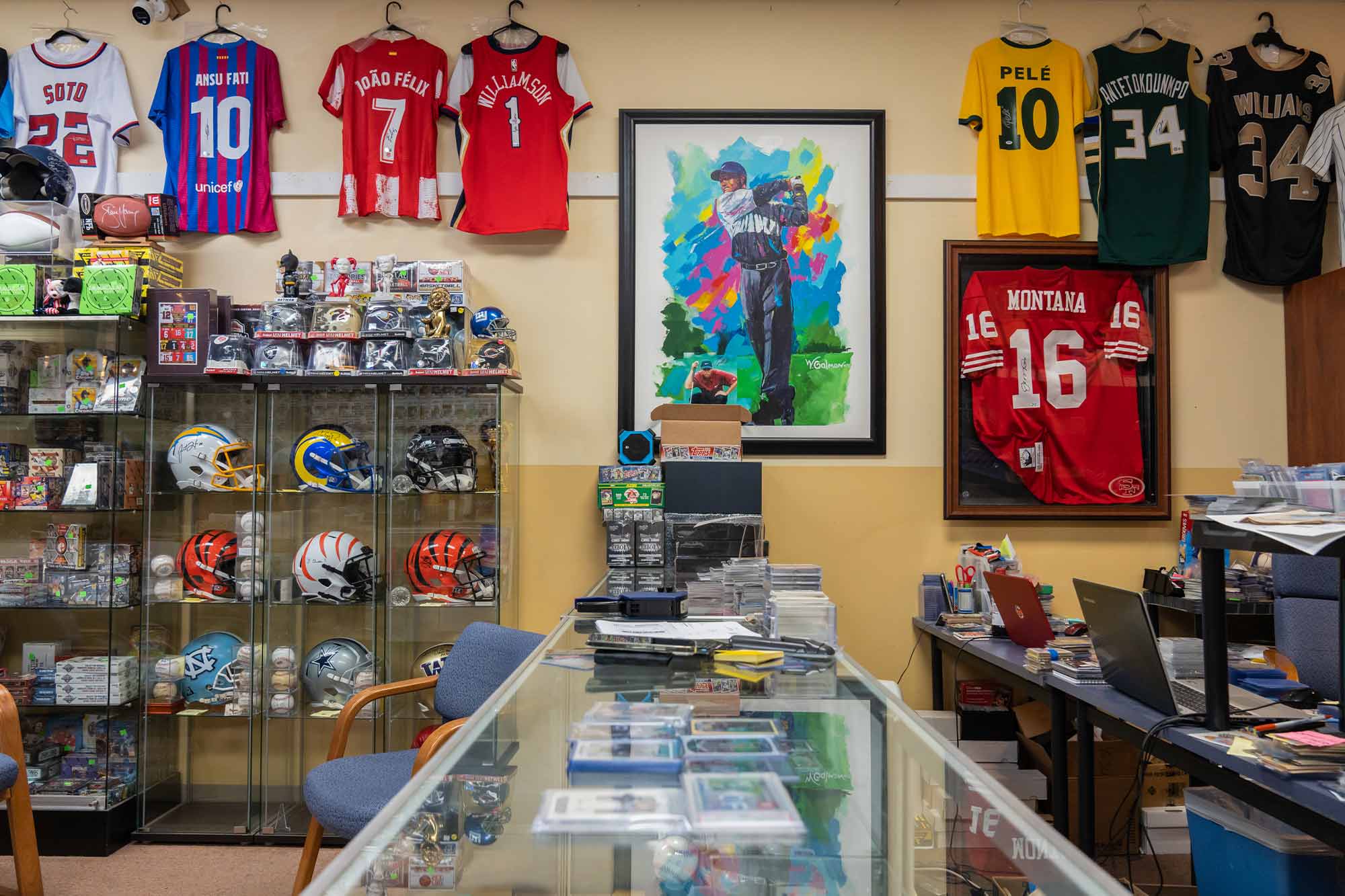On display toward the back of Cavalier Cards sports memorabilia shop off West Rio Road in Charlottesville is a shelf featuring, arguably, the hottest name in sports.
Aaron Judge of the New York Yankees on Tuesday evening broke a tie with Roger Maris, a former Yankee, for the all-time American League single-season home run record.
Maris’s 61 homers in 1961 had stood alone for six decades as the mark to beat in the American League – and, many baseball purists would argue, in Major League Baseball history. Judge moved past Maris on Tuesday when he led off a game with the Texas Rangers by belting homer No. 62 over the left field wall at Globe Life Field.
The top six home-run seasons in MLB history belong to three National League players, led by Barry Bonds’ 73 homers in 2001. The purists argue that all six seasons were tainted by allegations of steroid use, and that Maris’s 61 homers were the legitimate record entering this season.
Judge, on pace to pass Maris for a chunk of the second half of this season, has been firmly in the spotlight for a while now. College football games over the last two weekends have been interrupted to show Judge’s at-bats. The New York Times website has a special “Aaron Judge’s Pursuit of History” tab.













